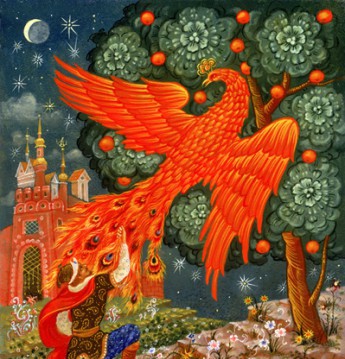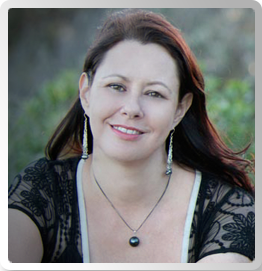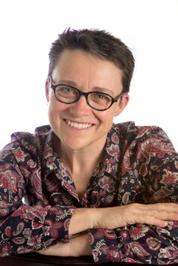 In just over a month–on September 8–the 2017 Conference of the Historical Novel Society Australasia will be kicking off in Melbourne. And not only do I have the privilege of speaking at the Conference, I also have the honour of being Conference Patron! It’s going to be a great conference, filled with interesting speakers, panels and events, and today I caught up with author Elisabeth Storrs, the program convenor, to tell readers more about it. And, by the way, once you’ve learned what a treat us in store, you can book tickets for the conference here 🙂
In just over a month–on September 8–the 2017 Conference of the Historical Novel Society Australasia will be kicking off in Melbourne. And not only do I have the privilege of speaking at the Conference, I also have the honour of being Conference Patron! It’s going to be a great conference, filled with interesting speakers, panels and events, and today I caught up with author Elisabeth Storrs, the program convenor, to tell readers more about it. And, by the way, once you’ve learned what a treat us in store, you can book tickets for the conference here 🙂
The 2017 HNSA conference is on next month in Melbourne, and there are lots of people–including me!–excitedly waiting for the big day! Elisabeth, can you give a bit of an overview of what to expect at the conference?
Over 60 fabulous speakers will celebrate the historical fiction genre, covering eras and events from the Ancient World through to WW2, at the HNSA 2017 Melbourne conference. The programme is divided into three streams. The first will explore the conference theme of Identity: Origins and Diaspora, and also includes interviews with numerous talented authors such as Kerry Greenwood, Kate Forsyth, Deborah Challinor, Lucy Treloar and you! We’re confident that attendees will find inspiration from such ‘personal histories’. For emerging and aspiring writers, the second stream looks at various aspects of the genre together with the craft of researching and writing. The third stream comprises an academic programme discussing Bio-Fiction and ‘The Lie of History’ that is open for general admission.
We are also conducting an extensive suite of workshops with wonderful tutors including Anne Gracie, Isolde Martyn, Lisa Chaplin, Hazel Edwards, Elizabeth Lhuede and Sherryl Clark giving insights into historical romance, pitching, the business of writing, social media and CYA. Kelly Gardiner and Rachel Franks provide practical tuition on tools such as Scrivener and Trove. Sulari Gentill offers tips on historical mystery, and Rachel Nightingale will demonstrate historical costumes. Greg Johnston gives the lowdown on self-publishing – and who can resist Leif the Viking displaying his array of armour? Additionally, Alison Arnold and Irina Dunn are available for 1:1 manuscript assessments while Gillian Polack is conducting 2 masterclasses on making history come to life through research and writing.
Back by popular demand, we’re running the First Pages Pitch Contest again in which ‘first page’ pitches of aspiring authors will be read anonymously by a narrator (Rachel Nightingale) to industry experts (Alison Green, Mandy Brett and you) who will provide a critique of chosen submissions. The session will provide the audience with a chance to learn what attracts the attention of agents and publishers when seeking new historical fiction. And many thanks to Eagle Books for providing the prize of a limited edition of Mikhail Strogoff by Jules Verne and an original 19th century print of  Russian life! The ASA is also kindly offering a free associate membership to the winner.
Russian life! The ASA is also kindly offering a free associate membership to the winner.
The theme, Identity: Origins and Diaspora, goes right to the heart of many modern as well as historical discussions and controversies. How did the HNSA committee come up with the theme, and how do you think it will be interpreted?
The committee wanted to explore the theme of Identity: Origins and Diaspora as we believe historical fiction plays an important role in informing current generations as to how national identities have been forged by past struggles, injustices, sacrifice, survival, and clash of cultures. Both Australia and New Zealand are multi-cultural societies with a rich history of migrant stories but both countries have also faced the pain of first encounters between first peoples and colonial settlers which require illumination and interrogation. How historical novelists grapple with portraying these meetings provides fertile ground for exploration. The issue of cultural appropriation will also be up for discussion. As such it was important to secure the appearance of speakers who represented a range of perspectives to reflect this. Our round table discussion at our opening reception on 9th September (after our History with a Twist cocktail party!)
features Arnold Zable, Hanifa Deen, Ngahuia te Awekotuku and Gary Crew who will discuss the role of the historical novelist in exploring first encounters in Australasian colonial pasts, the migrant experience underlying multicultural identity, and whether an author’s origins are relevant to the story telling.
There’s a packed conference program, and counting tutors and panel chairs as well as speakers, there are more than 70 presenters. How do you go about sourcing people to be presenters?
Our desire was to provide diversity in the conference line-up by including authors from a variety of backgrounds, particularly indigenous speakers. Fortunately, the success of
the inaugural conference in 2015 placed us in a happy position to be able to run two concurrent streams in 2017 to achieve this vision.
The first stream of the Saturday programme will continue to highlight the theme with keynote addresses from Lesley and Tammy Williams, authors of Not Just Black and White, followed by panels that will discuss the challenges faced in portraying the meeting of First Peoples with Europeans, and how historical novelists can breathe life into immigrant tales. I chose authors who had produced books that directly addressed one or more aspects of the conference theme such as Nicole Alexander, Maxine Alterio and Kim Kelly.
The remainder of the first stream concentrates on introducing readers and writers to the personal histories of the high profile authors I’ve already mentioned. Insights into the secrets of ‘the long haul’ of producing multiple books or series will be provided by Juliet Marillier, Libby Hathorn and Anne Gracie.
The second stream required further difficult decision making. I chose to separate the sessions into three areas: research and technique, sub-genres, and trends in publishing. I matched authors to the topics using criteria such as prominent reputation, favourable reviews, recommendations from HNSA patrons and committee members, and from among members of our HNSA Facebook group. Again, I hoped to achieve diversity in the panels. And my aim was to present authors who wrote across a range of eras and cultures while also including a few self-published writers with proven reputations. I was pleased to include more Kiwi authors to ensure a greater representation from New Zealand than in our 2015 conference. The result is a wonderful array of panels covering Historical Mystery (Sulari Gentill, Robert Gott, Meg Keneally, Gary Corby), Historical Romance (Isolde Martyn, Alison Stuart), CYA (Alan Tucker, Pamela Rushby, Gabrielle Wang, Wendy Orr), World War Fiction (Julian Leatherdale, Elise
McCune, Paddy Richardson, Justin Sheedy), ‘The Outlander Effect’ (Belinda Murrell, Felicity Pulman, Ella Carey) The Modern Voice in Historical Fiction (Kate Mildenhall, Melissa Ashley, Greg Pyers), International Fiction (Robyn Cadwallader, Natasha Lester, Prue Batten), Transmuting Research into Compelling Fiction (Barbara Gaskell Denvil, Wendy J Dunn, Stephanie Smee) and Authenticity vs Truth (Pamela Hart, GS Johnston, Tim Griffiths, Kathryn Gauci). And, of course, the weekend finishes with ‘Outside Your Comfort Zone – Writing Sex and Violence’ with less bashful authors Kate Forsyth, Luke Devenish and Anna Campbell.
I thoroughly enjoyed the first HNSA conference, back in 2015, and so did everyone I’ve spoken to who went there. And and I’m sure this one will be even better! But I know that behind the scenes there is a lot of frantic work. Can you tell us a bit about just what it takes to organise a conference of this size and scope, and how has it changed(if it has!) from 2015 to 2017?
Organising HNSA 2017 is a labour of love for all the committee members who have volunteered 18 months of their lives to bring the event to fruition. In 2015 we only ran one stream and a couple of workshops. 2017 presents two concurrent streams, 10 workshops, 2 masterclasses, 20 manuscript assessment sessions and our inaugural short story contest (with a prize of $500). In other words, the workload has more than doubled. The six committee members have wrestled with website development (our previous website was hacked!), content writing, programming, budgeting, sponsorship drives, marketing, social media streaming, and booking systems to name just a few major tasks. We also have boosted our HNSA blog content to bi-weekly postings and have produced a monthly newsletter. We are also proud to have produced our Imagining the Past podcast series hosted by newly recruited committee member, Kelly Gardiner. On top of all this, we have conducted satellite events in Sydney, Melbourne and Brisbane to help spread the word and also feature aspiring, emerging and established authors who may not have been included on the main conference bill. Frantic is definitely the right adjective!
What are you hoping will come out of the conference?
The last conference gave an opportunity for writers from various stages of their careers to mingle and feel a sense of community. I feel that was one of the major successes of 2015. Our aim is to widen the scope to include readers as well as writers. By presenting a broad programme that hopefully offers something for every historical fiction fan, we hope to build on connections and establish Australasian local chapters as is the case in the UK and USA.
Thanks for giving me the opportunity to tell your readers about HNSA 2017. We are super excited that you are our conference patron. I look forward to seeing you in Melbourne. You’ve supported us so well!
More about the Conference:
The HNSA 2017 Melbourne Conference is being held on 8-10 September 2017 at Swinburne University, Melbourne. This celebration of the historical fiction genre will showcase over 60 speakers discussing inspiration, writing craft, research, publishing pathways and personal histories in our weekend programme. Among the many acclaimed historical novelists participating are Kerry Greenwood, Kate Forsyth, Deborah Challinor, Libby Hathorn, Lucy Treloar, Sophie Masson, Sulari Gentill, Robert Gott and Arnold Zable. The HNSA’s speakers’ list is available on the HNSA website.
In addition to the two stream weekend programme, there will be ten craft based super sessions and two research masterclasses.You won’t want to miss our interactive sessions on armour and historical costumes either! Purchase a ticket and you will be entered in the draw to win a $100 Dymocks Gift Card.
Manuscript assessments will be conducted by industry experts, Alison Arnold and Irina Dunn. Our free extended academic programme is open for general admission but bookings are essential.
Our First Pages Pitch Contest offers an opportunity for submissions to be read aloud to a panel of publishers. And we are delighted to announce the introduction of our inaugural HNSA Short Story Contest with a $500 prize!
Visit the HNSA website to purchase your tickets now!
Subscribe to the HNSA newsletter for interviews, reviews and news.
Learn about sponsorship opportunities.
Let’s make a noise about historical fiction!












I’m looking forward to my first HNSA conference.
LikeLike
I am sure you will enjoy it!
LikeLiked by 1 person